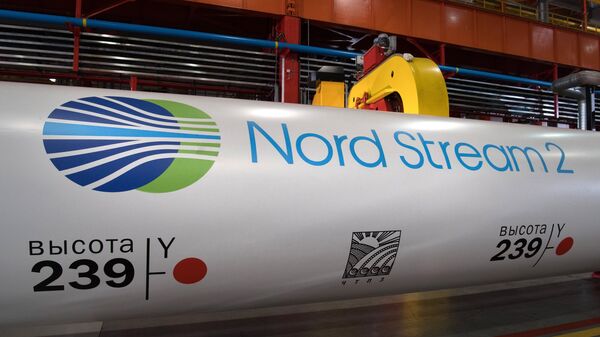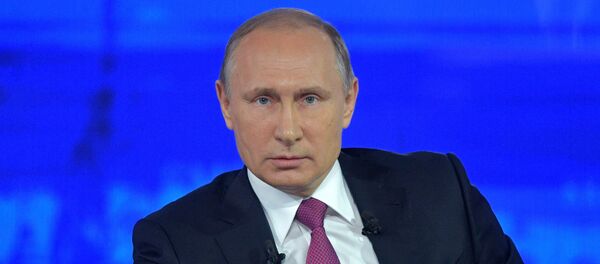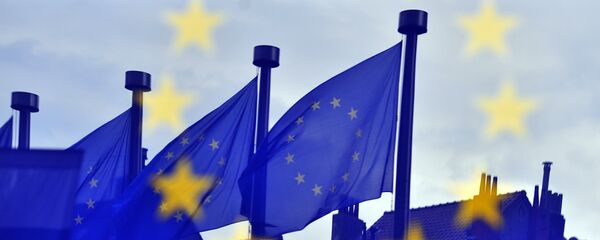France and Germany have so far spoken out against the bill that the US House passed overwhelmingly on Tuesday as one that adversely affects European industries while advancing US commercial interests.
"Undoubtedly, I agree with Russian President Vladimir Putin on this, it is bad that the sanctions are being used as an element of unfair competition to push Russian energy companies, Gazprom above all, out of the European market. The alternative [to Russian gas] is buying rather expensive US gas," Shokhin told reporters.
According to the RSPP head, this situation is an embodiment of US President Donald Trump's campaign slogan "Make America Great Again."
"This is an aggressive pushing of competitors out and it works in the interest of US business," Shokhin said.
The RSPP head noted that US-Russian relations in economy, trade and investments were not developed well enough for sanctions to hurt the United States, and added that Russian counter-sanctions would "miss the target."
"Undoubtedly, the most unpleasant thing about these sanctions for us is the behavior of other countries, the European ones above all, who, fearing consequences of their work with Russia, may shut down cooperation program," Shokhin said.
According to the RSPP head, Russia has to build relationships with countries that were not afraid of sanctions.
Shokhin went on to add that Russia had to integrate production chains that would render sanctions against the country impossible.
"That is why it is impossible to impose sanctions on the Chinese no matter what they do, whether about yuan exchange rate, or breaking the World Trade Organization rules or copyright protection, it is difficult to impose sanctions on them because the US markets of goods, service and finances depend on the behavior of the Chinese," Shokhin said.
The RSPP head said Russia was specializing on delivery of raw materials, a field in which it was very easy to find replacements.
"I think we should use the same scenario: we have to be looking for those who can replace US and European companies. But it is very important not to have these country-specific sanctions, the sanctions on key sectors, scare off companies from non-involved countries, including in the Pacific region, from cooperating with Russia," Shokhin said.
The bill, which is yet to be approved by the Senate and the administration of US President Donald Trump, has already prompted criticism within the European Union. Thus, German Foreign Minister Sigmar Gabriel and Austrian Chancellor Christian Kern have condemned the draft of new US sanctions, which, they said on June 15, were about "selling American liquefied natural gas and ending the supply of Russian natural gas to the European market."
In April, Gazprom's subsidiary Nord Stream 2 AG signed a deal with French Engie, UK’s Royal Dutch Shell, Austria’s OMV and Germany's Uniper and Wintershall, which agreed to provide part of long-term financing of the gas pipeline project, estimated at 9.5 billion euros ($10.6 billion).
The Nord Stream 2 project presumes the construction of two gas pipelines with a combined annual capacity of 55 billion cubic meters of gas. The new pipeline is planned to be laid along the existing Nord Stream pipeline route from the Russian coast through the Baltic Sea, on to a hub in Germany.






